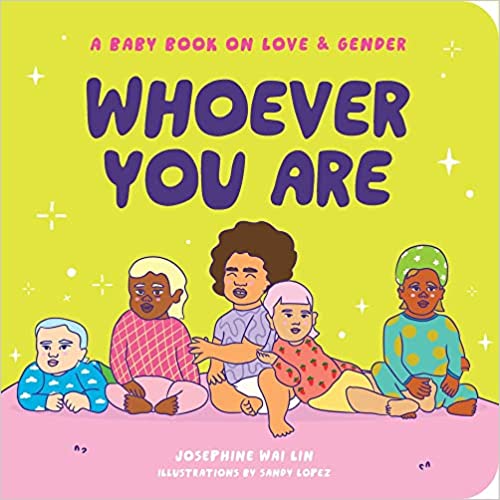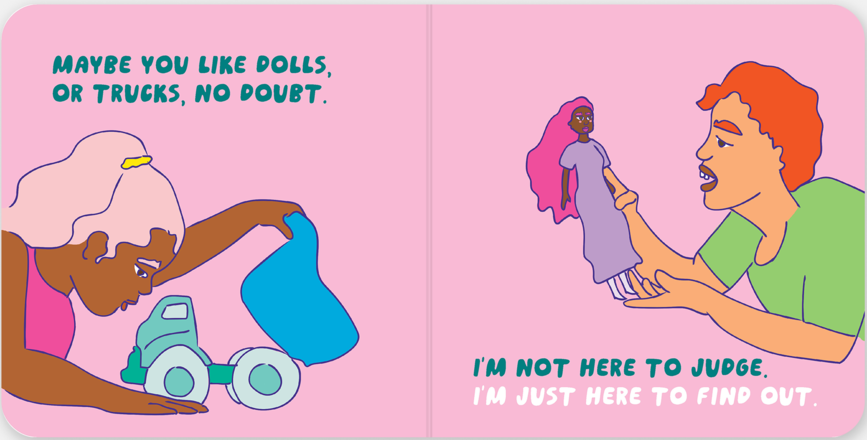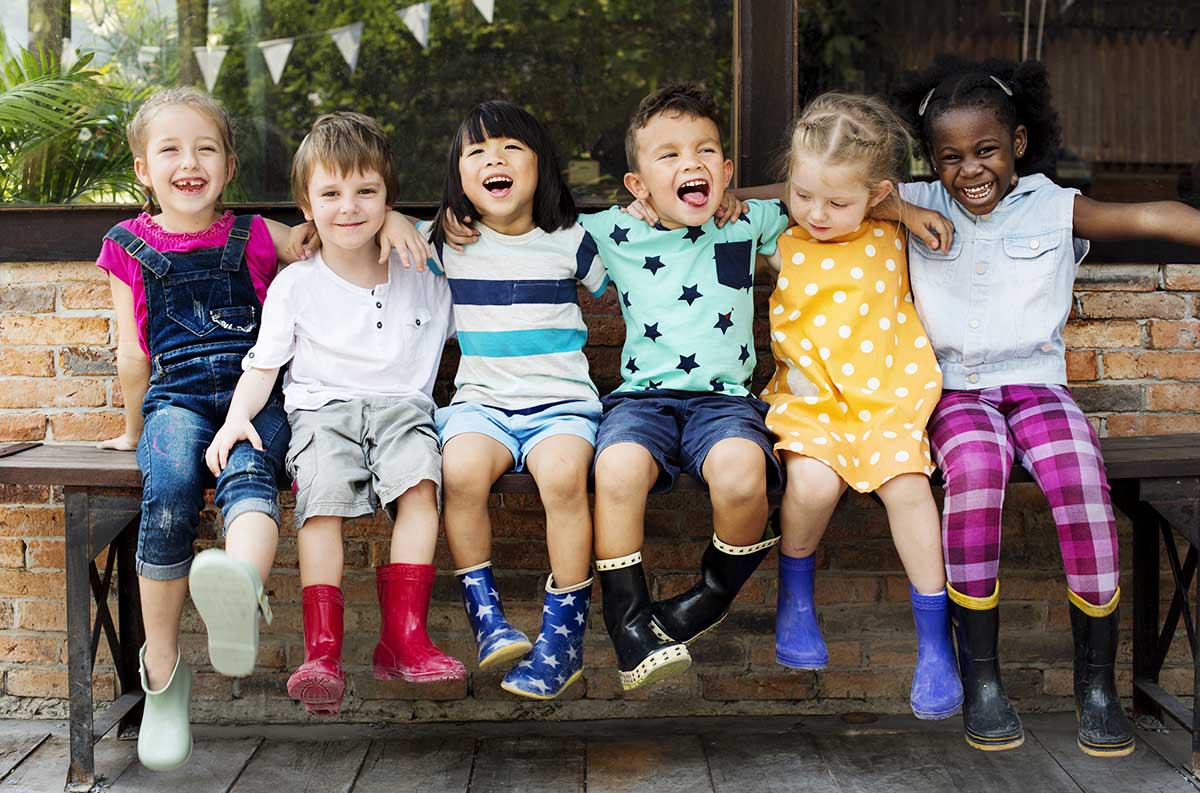
Inclusive Children's Book Teaching Guide
Whoever You Are: A Baby Book on Love and Gender
What is this book about?
You being you, there’s no way to be wrong . . .
Every day, parents come home from the hospital with a brand-new human being. What if we made vows to our babies to love them no matter what? What if the world didn't rush in to judge our little ones and instead made them feel truly seen and supported?
With vibrant illustrations and exuberant rhythms and rhymes, Whoever You Are is the ultimate vow that every child will love to grow up hearing.
Who is depicted in this book?
- Children who transcend gender stereotypes
- Children in a variety of fantastical and pretend play scenarios
What early childhood themes and concepts does this book explore?
- Gender identities that transcend binary constructs such as "boy" or "girl"
- Children declare and express their gender identities in numerous ways
- How parents/caregivers show love
- Pride in one’s identity and feeling good about oneself, with loving support from the caregiver narrator
- Familiar play activities (e.g., dolls, trucks)
- The book is written as a conversation between the reader and a child, so reading it aloud can become a conversation in which adults convey unconditional love to children, regardless of their identities.
How does this book support anti-bias education?
Sharing this book can promote conversation around being one’s authentic self, mainly around gender identity but also through individual interests and expression.
Depending on how the book is shared or used—and the developmental level of the children—Whoever You Are: A Baby Book on Love and Gender may be used to support the following core goal from the book, Anti-Bias Education for Young Children and Ourselves:
Identity—Teachers will nurture each child’s construction of knowledgeable and confident personal and social identities so that children will demonstrate self-awareness, confidence, family pride, and positive social identities.
How can this book be used to meet early childhood learning standards?
For all ages
Use Whoever You Are: A Baby Book on Love and Gender to meet early childhood literacy standards
For children from birth to age three
Teaching suggestion: Share this book during quiet moments of closeness when its affirming messages can be softly and gently reinforced through back-and-forth exchanges.
What Illinois Early Learning Guideline does this meet for children from birth to age three?
Developmental DomainSocial-Emotional Development
Standard: Attachment RelationshipsChildren form secure attachment relationships with caregivers who are emotionally available, responsive, and consistent in meeting their needs.
Indicators for children:
- Uses social referencing with caregiver (7–18 months)
- Initiates and maintains interactions with caregivers (7–18 months)
- Initiates activities that are meaningful to the relationship, e.g., reading a favorite book together (21–36 months)
Teaching suggestion: Encourage the children to identify themselves and others in the book by relating to the characters’ features and choices.
What Illinois Early Learning Guideline does this meet for children from birth to age three?
Developmental DomainSocial-Emotional Development
Standard: Self-ConceptChildren develop identity of self.
Indicators for children:
- Displays beginning of joint attention (Birth–9 months)
- Engages in joint attention with familiar others (7–18 months)
- Points to self in images and other types of media (16–24 months)
- Begins to show interest in describing physical characteristics (21–36 months)
For preschoolers (ages three to five)
Teaching suggestion: Whoever You Are presents a counternarrative to gender stereotypes and binary depictions of gender by giving children opportunities to explore the concept of gender as a spectrum. This concept may require more time to explore. Children can discuss ways to disrupt the stereotypes of what is a “boy thing” or a “girl thing," such as toys, activities, interests, etc.
What Illinois Early Learning and Development Standards does this meet for preschoolers?
Social/Emotional Development Standard31ADevelop positive relationships with peers and adults.
Benchmark 31.A.ECb:
Recognize the feelings and perspectives of others.
Benchmark 31.A.ECe:
Develop positive relationships with peers.
Teaching suggestion: Encourage the children to describe themselves in a variety of ways (using the book for ideas) and validate the interests, preferences and identities of their peers.
What Illinois Early Learning and Development Standards does this meet for preschoolers?
Social/Emotional Development Standard30BRecognize own uniqueness and personal qualities.
Benchmark 30.B.ECa:
Describe self using several basic characteristics.
See inside this book.

What other resources are available?
Look inside this book on the publisher’s website.
